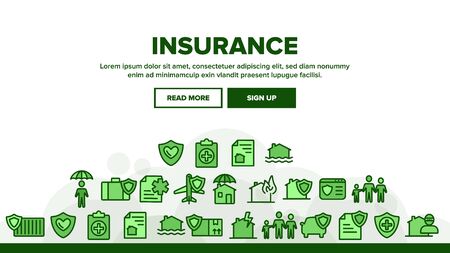What Is General Liability Insurance?
General liability insurance is a foundational type of business insurance that helps protect small business owners in the US from financial loss due to everyday risks. It’s often considered the first and most important coverage for any American small business, whether you run a coffee shop, work as a contractor, or own an online boutique.
What Does General Liability Insurance Cover?
This insurance covers claims related to:
| Type of Coverage | What It Means | Real-World Example |
|---|---|---|
| Bodily Injury | Covers medical expenses if someone is injured on your business premises or because of your operations | A customer slips and falls in your store, breaking their arm |
| Property Damage | Pays for damages caused to someone else’s property by your business activities | You accidentally spill coffee on a client’s laptop during a meeting |
| Personal & Advertising Injury | Covers legal costs if youre sued for libel, slander, copyright infringement, or false advertising | Your ad mistakenly uses another company’s copyrighted slogan and they sue you |
| Legal Defense Costs | Covers attorney fees and court costs even if you’re not found liable | You’re taken to court over an alleged injury but win the case—your legal bills are still paid |
Why Is General Liability Insurance Crucial for Small Businesses in the US?
Lawsuits are common: In America’s highly litigious society, even small accidents can lead to big lawsuits. Without insurance, a single claim can threaten your finances and reputation.
Protects your assets: General liability insurance helps shield your personal and business assets from claims that could otherwise devastate your savings or force you to close shop.
Required by clients and landlords: Many commercial leases, contracts, and clients require proof of general liability coverage before doing business with you.
Main Benefits for Small Business Owners:
- Peace of mind: Focus on running your business knowing youre protected from common risks.
- Professional credibility: Having insurance shows clients and partners you take risk management seriously.
- Covers more than just accidents: From slip-and-fall injuries to advertising mistakes, this policy covers a wide range of scenarios.
Who Needs General Liability Insurance?
If you interact with clients face-to-face, have a physical location, advertise your services, or handle customer property—even just occasionally—general liability insurance should be at the top of your list.
2. Key Benefits and Protections
General liability insurance is one of the most essential types of coverage for small business owners in the US. It helps protect your business from a wide range of risks and unexpected events that could otherwise lead to costly lawsuits or financial losses. Let’s break down the main advantages and protections this insurance provides, so you can see why it’s often considered a must-have.
Main Coverages Offered by General Liability Insurance
| Type of Protection | What It Covers |
|---|---|
| Bodily Injury | If a customer, vendor, or other third party is injured at your business location or as a result of your business operations, general liability insurance helps pay for their medical expenses and related costs. |
| Property Damage | This coverage kicks in if your business accidentally causes damage to someone else’s property, such as breaking a client’s equipment during a service call or damaging a rented space. |
| Legal Fees & Defense Costs | If your business is sued—even if the claim is groundless—general liability insurance can help cover attorney fees, court costs, settlements, and judgments. |
| Personal & Advertising Injury | This includes protection against claims like libel, slander, copyright infringement, or false advertising that may arise from your marketing efforts or communications. |
Why These Protections Matter for Small Businesses
Small businesses are often more vulnerable to lawsuits and accidental damages because they might not have large cash reserves to handle expensive claims. Just one accident or legal dispute could put your business at serious financial risk. General liability insurance acts as a safety net by covering these potential costs and helping you keep your focus on growing your business instead of worrying about “what if” scenarios.
Real-World Examples:
- Bodily Injury: A customer slips on a wet floor in your store and breaks an arm. Your policy covers their medical bills.
- Property Damage: An employee accidentally knocks over a client’s computer during an office visit. Your insurance helps pay for repairs or replacement.
- Legal Fees: A competitor claims your recent ad campaign used their copyrighted material. Your general liability policy steps in to cover defense costs.
Peace of Mind for Business Owners
With general liability insurance in place, you can operate with greater confidence knowing you’re protected from some of the most common risks faced by small businesses in the US. This coverage not only protects your finances but also helps build trust with clients and partners who appreciate that you take risk management seriously.

3. Who Needs General Liability Insurance?
If you own a small business in the US, general liability insurance is one of the most important types of coverage to consider. But who really needs it? Let’s break down which businesses should prioritize this insurance and what kinds of risks it helps protect against.
Types of Small Businesses That Should Prioritize Coverage
General liability insurance is not just for big companies or those in risky industries. Many small businesses face everyday risks that could lead to costly lawsuits or claims. Here’s a look at some common business types that should consider this coverage:
| Business Type | Why They Need It |
|---|---|
| Retail Stores | High foot traffic increases the risk of slip-and-fall accidents and property damage claims from customers. |
| Restaurants & Cafés | Frequent customer interactions and food service can result in injury, illness, or property damage claims. |
| Contractors & Handyman Services | Working at clients’ properties exposes you to accidental damage or bodily injury liabilities. |
| Consultants & Freelancers | Client meetings and presentations carry risks, even if you don’t have a physical storefront. |
| Online Sellers (with warehouse/pickup locations) | Customers visiting your location could get injured or cause accidental damage. |
| Personal Trainers & Fitness Instructors | Bodily injury risks during training sessions, both on-site and off-site. |
Typical Risks General Liability Insurance Helps Mitigate
This type of insurance covers a range of situations that can happen to any small business owner. Some of the most common risks include:
- Bodily Injury: If a customer slips and falls at your place of business.
- Property Damage: Accidentally damaging a client’s property while working on their premises.
- Advertising Injury: Claims related to copyright infringement, slander, or libel from your marketing materials.
Why Prioritize This Coverage?
Lawsuits and legal claims can be expensive—even if you’re not at fault. General liability insurance helps cover legal fees, settlements, and medical expenses so you can focus on running your business without worrying about financial ruin from unexpected accidents or claims.
4. Choosing the Right Policy
How to Evaluate Insurance Providers
Picking the right insurance provider is crucial for your small business. Here are some practical tips to help you make a smart choice:
- Check Reputation: Look for providers with strong financial ratings and positive customer reviews.
- Customer Service: Make sure they offer responsive support and easy claims processing.
- Experience with Small Businesses: Choose companies that understand the unique needs of small businesses in your industry.
Understanding Policy Limits
Policy limits determine how much your insurance will pay in case of a claim. It’s important to know what these limits mean for your business. Here’s a quick breakdown:
| Term | What It Means | Example |
|---|---|---|
| Per Occurrence Limit | The maximum amount paid for a single claim | $1 million per incident |
| Aggregate Limit | Total amount paid out during the policy period (usually one year) | $2 million total coverage per year |
| Deductible | The amount you pay before insurance kicks in | $500 per claim |
Selecting Coverage That Fits Your Business Needs
No two small businesses are exactly alike, so your general liability coverage should reflect your specific risks and operations. Consider these factors:
- Your Industry: Some industries face higher risks (like construction or food service) and may need more coverage.
- Your Location: State laws can affect insurance requirements—check what’s needed in your area.
- Your Business Size: The number of employees, annual revenue, and client contracts can influence the type and amount of coverage you should get.
- Add-Ons or Endorsements: Ask about extra protections, like professional liability or cyber liability, if they’re relevant to your business.
Questions to Ask Before You Buy
- Does this policy cover all my main business activities?
- Are there any exclusions I should know about?
- How quickly are claims processed?
- Can I adjust my coverage as my business grows?
5. Costs, Claims, and Common Pitfalls
Understanding Typical Costs of General Liability Insurance
The cost of general liability insurance for small businesses in the US varies depending on several key factors like industry, location, business size, and coverage limits. Here’s a quick breakdown to give you an idea of what to expect:
| Business Type | Average Monthly Cost | Annual Range |
|---|---|---|
| Retail Store | $50–$80 | $600–$960 |
| Contractor/Construction | $70–$120 | $840–$1,440 |
| Professional Office (e.g., consultant) | $30–$60 | $360–$720 |
| Food Service (small cafe) | $60–$110 | $720–$1,320 |
Keep in mind: Higher-risk industries or businesses with more employees may pay more. You can often save by bundling policies or paying annually instead of monthly.
The Claims Process: What to Expect Step by Step
If an accident happens and you need to file a claim, here’s what the typical process looks like:
- Notify Your Insurer: Contact your insurance provider as soon as possible after the incident. Provide all relevant details—who was involved, what happened, where it occurred.
- Gather Documentation: Collect photos, witness statements, police reports (if applicable), and any other supporting information.
- File the Claim Form: Complete your insurer’s claim form either online or through your agent. Attach your documentation.
- Investigation: The insurance company reviews the claim and may contact you or other parties for more info.
- Resolution: If approved, the insurer will pay out up to your policy limits for covered losses. If denied, they’ll explain why.
Pro Tip:
Keep records of all communications with your insurer during the claims process. It can help if there are any disputes later.
Common Mistakes US Small Business Owners Should Avoid
- Underinsuring Your Business: Choosing too low a coverage limit to save money can leave you exposed to big risks.
- Not Updating Your Policy: Failing to update your coverage as your business grows or changes can result in gaps that aren’t protected.
- Lack of Documentation: Not keeping thorough records of incidents or communications may delay or hurt your claim.
- Missing Deadlines: Waiting too long to file a claim can result in denial by the insurer.
- Ignoring Exclusions: Not understanding what your policy doesn’t cover can lead to surprises when you try to file a claim.
Avoiding These Pitfalls Can Save You Time and Money!
If you stay proactive and keep good records, general liability insurance can be a true safety net for your small business in the US.


